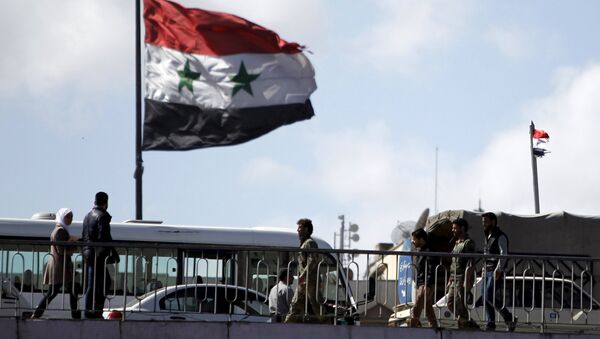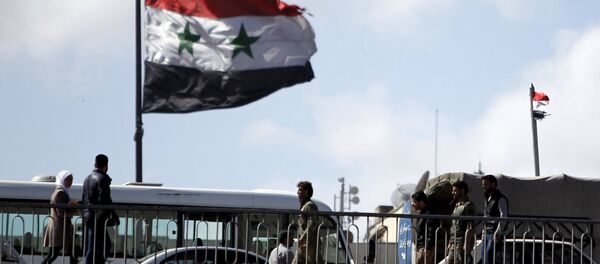On Thursday, Syrian Prime Minister Wael Nader Halqi told Sputnik in an interview that instead of helping in the settlement of the Syrian crisis, Saudi Arabia, Qatar, Turkey, France and the United Kingdom were arming terrorists in Syria.
"The [Syrian] government should have a different approach and instead of blaming everyone, it needs to address an issue of the anti-Syrian economic sanctions that are destroying the country’s economy," Samir Aita said adding that prospects of lifting the economic restrictions were discussed last week during the spring meetings of the International Monetary Fund (IMF) and the World Bank in Washington.
Aita said he brought the need to lift the economic sanctions to the attention of the IMF and the European Union, claiming it was "useless unlike personal sanctions." IMF Managing Director Christine Lagarde noted that a question of the sanctions against Syria should be reviewed, according to the politician.
Following the beginning of the civil war in Syria in 2011, Damascus has been targeted by restrictions imposed by interstate organizations, such as the European Union and the Arab League, as well as by particular countries, including Turkey and the United States. The measures include trade restrictions, as well as personal travel bans and an asset freeze on certain Syrian officials.



